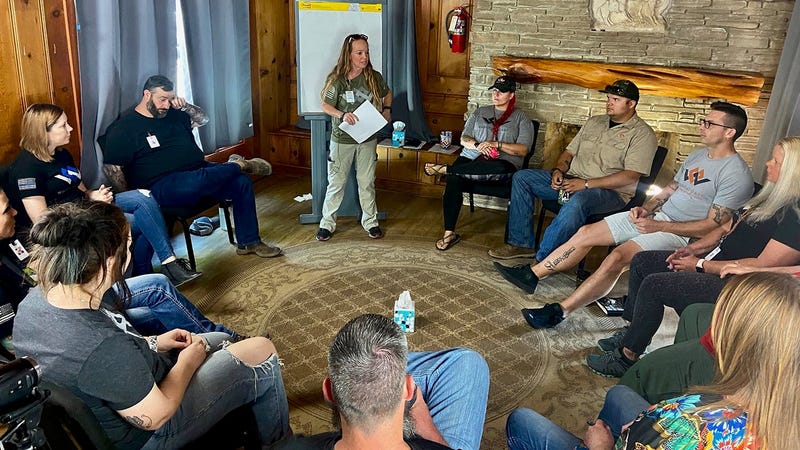
For World Mental Health Day on Oct. 10 and during Mental Illness Awareness Week, Warriors Heart is calling for greater access to dual diagnosis care for military service members, veterans and first responders.
According to a recent study by the National Institutes of Health, 85.3 percent of veterans with PTSD reported that worsening PTSD symptoms led to increased substance use. A 2023 National Survey on Drug Use and Health found that up to 75 percent of veterans with SUD (Substance Abuse Disorder) also have PTSD, and 20-30 percent of veterans with PTSD have a comorbid SUD.
Warriors Heart private treatment center exclusively serves military, veterans and first responders battling addiction, PTSD and co-occurring mental health conditions together.
“Warriors Heart opened in 2016 to battle the unacceptable average suicide rates of 22 veterans a day and one first responder every 17 hours in the U.S.,” said Warriors Heart President/Co-Founder and retired Army Master Sergeant Tom Spooner. “This is not just a community issue - it is a national crisis.”
While dual diagnosis is not a new concept in behavioral health, many treatment programs still separate addiction treatment from mental health care, leaving warriors to navigate fragmented systems.
Dual diagnosis care is built into Warriors Heart's 42-day residential treatment program and carried through every step of the full continuum of care.
“We really want to break that stigma that our warriors have to be tough, and it’s not ok to get help. It is ok to get help,” said former law enforcement officer and Warriors Heart co-founder Lisa Lannon. “It makes them stronger as an individual, and for their families and communities once they get rid of the emotional wounds.”
Each Warriors Heart client is also assigned two licensed counselors — one focusing on substance use disorder and another on their co-occurring mental health condition. This ensures warriors don’t have to fight one battle at a time, but both together.
Warriors Heart clients regularly participate in evidence-based treatment, including individual and group therapy. To process their healing, they also participate in optional electives, which include fishing at the lake, gym, jiu jitsu, hiking trails, art studio, wood shop, metal shop, K9 therapy, equine therapy and more.
“Warriors Heart’s program treats the whole body with evidence-based treatments and holistic healing electives,” said Spooner.
To learn moe about Warriors Heart, visit here.
Reach Julia LeDoux at Julia@connectingvets.com.
